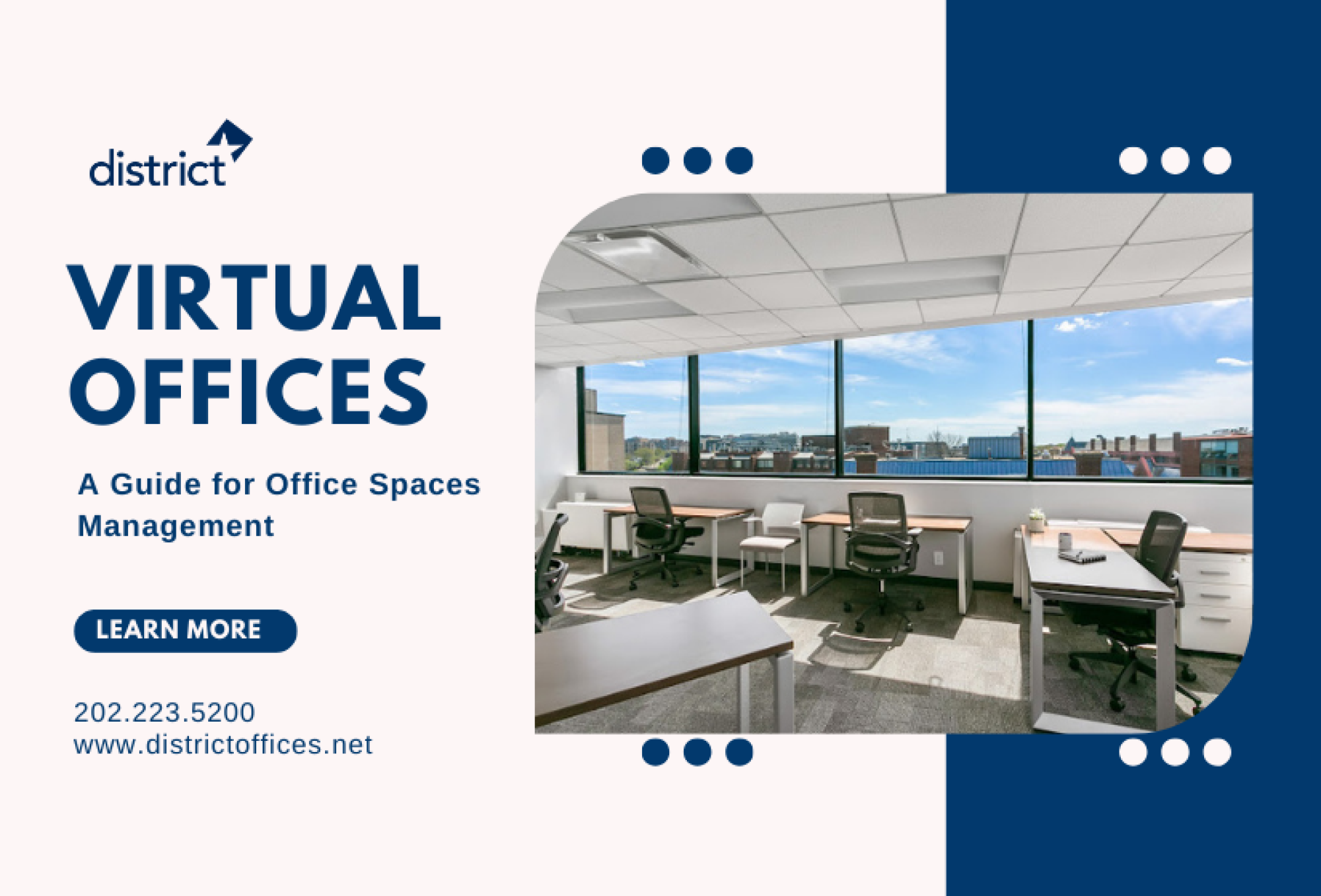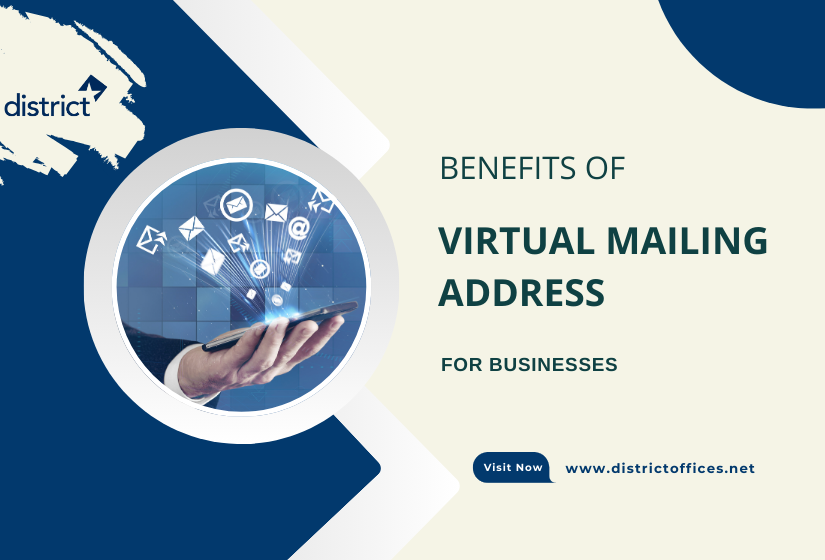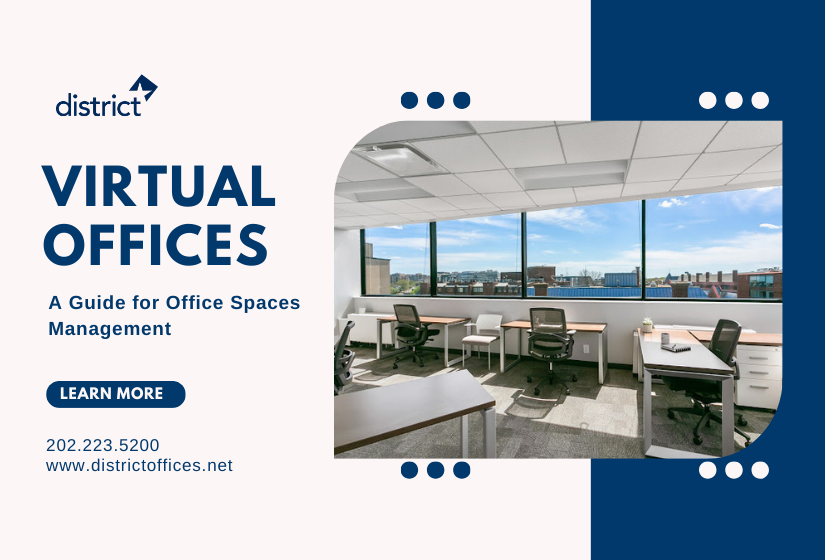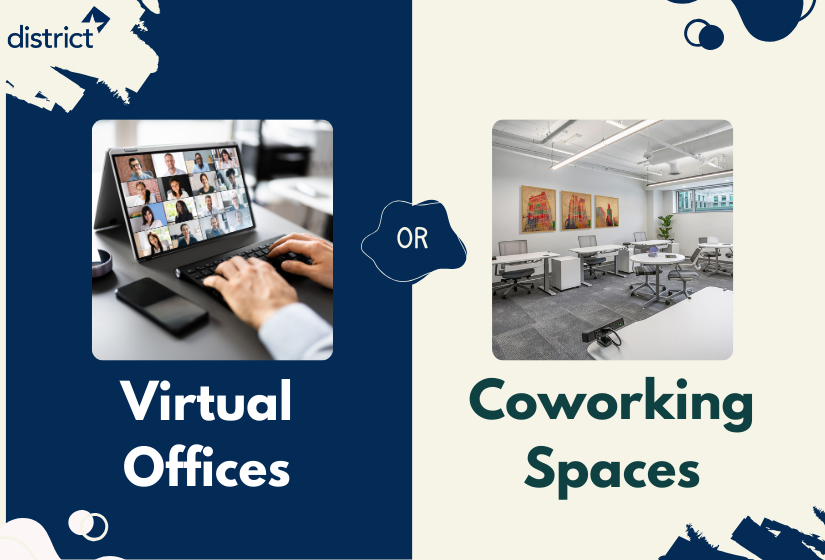In today’s fast-changing business world, the way we work is undergoing a major transformation. Traditional office setups are no longer the only option — flexibility, mobility, and cost-efficiency are now at the forefront of modern workplace strategy.
As businesses adapt to this new reality, virtual offices have emerged as a smart solution — enabling teams to work from anywhere while maintaining a professional presence and seamless operations.
Now, what is virtual office space? Virtual Offices provide businesses with the flexibility to maintain a professional image through a designated address and business phone number, all while empowering employees to work remotely from the comfort of their homes or any location.
This approach not only ensures seamless business operations but also improves agility and adaptability in response to dynamic market conditions. The popularity of virtual offices is at its peak, providing a suitable solution for business professionals seeking flexibility without the need for a traditional office space.
But before we dive in, let’s start by defining what exactly a Virtual Offices is.
Table of Contents
ToggleWhat is a Virtual Office and How Does it Work?
Virtual Office is a service that provides businesses with a professional business address, communication services, and administrative support without requiring a physical offices space. It allows companies to establish a presence in a specific location while operating remotely.
Imagine having the benefits of a physical office without a massive price tag. With a virtual office, you can establish a professional business address in any city. Your team can seamlessly coordinate their work using teleconferencing and collaboration tools, eliminating the need for physical contact.
This setup enables individuals to work remotely while still maintaining productivity and efficiency.
Plus, virtual offices offer additional benefits such as a dedicated phone line, a registered professional address, and access to meeting rooms as and when required. When talking about the Virtual Office, you can enjoy the convenience of a premium business address in a prime location, complete with mail notifications and scanning services.
Business meetings, team discussions, and hiring processes are all easily carried out in sleek meeting rooms, available for booking at coworking space.
Prioritizing your brand image and utilizing this facility can leave an impression on your stakeholders. Stay connected with your mail through email or SMS notifications, ensuring you never miss an important mail or message. With the flexibility to pick up your mail at your convenience, members of Virtual Office can enjoy seamless access to their physical address.
Virtual offices are an excellent solution for businesses that are always on the move or operate from various locations. Offering the freedom and flexibility needed for success, these offices empower your business to grow and succeed.
Types of Virtual Offices
Choosing a virtual office can suit diverse business needs thanks to several options. Let me break down the main types for easier understanding:

Address-Only Virtual Offices
Get a professional business address without a physical workspace. Ideal for remote teams needing a physical address for mail handling and legal reasons.
Telephone Answering Virtual Offices:
Receive a dedicated phone number and professional receptionists who answer calls on your behalf. They can take messages, forward calls, and provide basic info about your company.
Mail Forwarding Virtual Offices:
Like address-only, this option includes mail handling services. Your virtual office provider receives your mail and packages, then forwards them to your desired address.
Meeting Room Access Virtual Offices:
Alongside a business address and mail handling, gain access to physical meeting rooms or conference facilities on an as-needed basis.
Hybrid Virtual Offices:
Combine various virtual office services (like a business address, mail handling, telephone answering, and meeting room access) into a customizable package tailored to your specific requirements.
Virtual Offices with Co-Working Spaces
Gain access to co-working spaces or shared office facilities in addition to virtual office services. Work in a collaborative environment alongside other professionals while still enjoying virtual office benefits.
Executive Suite Virtual Offices:
Offers prestigious business addresses in high-profile locations, along with additional amenities like personalized call answering, administrative support, and access to upscale meeting spaces.
Global Virtual Offices:
Establish a local presence in different regions worldwide through business addresses and support services in multiple countries or cities. Great for businesses with an international presence or those targeting global markets.
Customized Virtual Office Solutions:
Tailor-made solutions for specific industries or unique business requirements. Whether you need specialized mail handling, industry-specific amenities, or integration with other business services, a customized virtual office can be designed to meet your needs.
Who Can Use Virtual Office Services?
As the landscape of business grows with emerging models, so do the needs of organizations.
While traditional office setups still exist for some, the evolution of Internet technologies has opened doors to conducting business without the constraints of physical space. This has made the emergence of the concept of virtual offices.
Virtual offices offer an affordable solution, making them particularly appealing to emerging startups with limited capital for traditional office spaces.
Their user base ranges from independent freelancers and bloggers to fledgling businesses seeking flexibility beyond physical boundaries.
While these individuals and teams succeed in remote work environments, they recognize the importance of maintaining an official office address to improve their professional presence.
The following people and setups can profit from Virtual Offices:
- Scattered Teams: To register their firm and complete official tasks, teams that are not restricted to a specific place frequently use virtual addresses.
- Startups and Small Businesses: These entities typically establish their operations outside of their homes. However, listing your home address on a website or Google search is unprofessional. As a result, they select virtual office addresses.
- Virtual Entrepreneurs: This idea is most appropriate for independent contractors, business advisors, bloggers, and internet marketers who operate remotely but require a physical location for correspondence and official business.
- Registered Companies with Remote Teams: To take advantage of virtual addresses and add-on services, registered companies with remote teams use virtual office services.
Other than this, virtual offices are also used by:
- Freelancers
- Online businesses
- Tech Giants
- Global Businesses
What are the Advantages of Using a Virtual Offices?
Virtual offices come with a range of advantages that attract people to move away from the traditional physical office setups. These advantages include:
- Virtual offices eliminate the need for owning or leasing conventional office space. Their affordability enables startups to maintain minimal overhead costs, while also mitigating the financial risks associated with launching new products or services or entering unfamiliar markets.
- Multiple businesses operate from the convenience of home settings. While these small ventures are often packed with creativity, they may sometimes lack the structured reliability found in larger setups.
- The commitment required is minimal, as contract terms typically begin every month or extend to three months or more. This flexibility allows for easy withdrawal with minimal financial loss if needed.
- While businesses may attract a huge customer base initially, this interest often fails to translate into sustained sales and profitability. Without a designated mailing address, these businesses can appear unreliable, making it challenging for customers to confidently invest their money.
- Virtual Offices offer more than just a business address; they also safeguard small businesses from using their home addresses for business purposes, mitigating significant privacy and security risks.
- Virtual Offices serve as an excellent cost-saving solution for small businesses, and start-ups seeking to streamline their communications. They provide a perfect alternative for individuals and teams who do not need a physical workspace, all while ensuring reliable delivery services.
- Additionally, virtual offices serve as a powerful tool for improving a brand’s image. By providing mailing addresses and accessible locations, they infuse credibility into your business operations, attracting a wider audience and increasing visibility on search engines through improved local engagement.
- By utilizing virtual offices, businesses appear more accountable and responsive to those investing their time and money. Customers are assured of reaching communication executives to address their concerns and receive personalized assistance to meet their needs more effectively.
- Utilizing a virtual office furthermore helps reduce legal risks by enabling legal entities to delimit between personal and business assets effectively.
How to Set Up a Virtual Offices
Creating a virtual office can enhance your company’s image, save costs, and offer flexibility. Here’s a simplified guide to help you establish a virtual office:
Select a Provider:
Research and choose a virtual office provider that aligns with your location, services, and budget requirements.
Choose a Location:
Decide where you want your virtual office to be located, considering your business needs, which could be in a different city or country.
Select Services:
Pick essential services like a business address, mail handling, phone answering, and conference room access based on your company’s needs.
Register:
Sign up for a virtual office plan by completing an online form and submitting necessary documents to the provider.
Configure Mail Handling:
Coordinate with your provider on how you want mail handled – whether to collect it in person or have it forwarded to another address.
Set Up Phone Answering:
Provide instructions and scripts for phone answering services if included in your virtual office plan.
Access Additional Services:
Utilize extra services like coworking spaces, IT support, or administrative assistance if they benefit your business.
Promote Your Address:
Use your virtual office address on marketing materials like websites and business cards to maintain a professional image.
Utilize Meeting Rooms:
If available, book meeting rooms for client meetings or presentations to enhance professionalism.
Assess and Adjust:
Regularly review your virtual office setup to ensure it meets your needs; make necessary changes as your business grows and evolves.
Key Takeaways:
Here are some key takeaways that you should always remember, when talking about Virtual Offices:
- A virtual office does not have a physical location; instead, it works as a single entity with a physical mailing address.
- Hiring possibilities for businesses and work options for employees are expanded by virtual office arrangements.
- Virtual offices are popular among small firms and startups since they are far less expensive to operate than regular offices.
- Virtual offices have grown due to the introduction of tools like message services and video conferencing capabilities.
- Although virtual offices are often less expensive for businesses, certain services, such as videoconferencing and phone answering, may not be available to everyone.
- Improved productivity might also result from a virtual office since its services relieve employees of administrative duties and travel time. Each worker can work from wherever is most convenient for them, and the business is not limited to employing local workers.
- As remote work gains popularity, the advantages of a virtual office become evident. Yet not everything is seamless. It may appear that scheduling virtual office space is no different than scheduling conflicts in a physical office and sometimes may even be more time-consuming.
Conclusion
You must be aware of what a virtual office space is by now. So, in summary, it can be said that virtual offices present an excellent opportunity to cut down expenses and improve flexibility for your business.
While they come with numerous benefits, thorough research on optimal virtual office packages, strategic planning, and preparing yourself with the necessary tools are essential steps to ensure the success of your virtual office venture.
Furthermore, virtual offices frequently provide fundamental business services that can support your business’s operations. Today there is a diverse array of virtual office options, providing ample choices for businesses.
Before starting with your search, it is vital to carefully assess your specific requirements and ensure that the chosen virtual office aligns with both your immediate needs and future aspirations.
So, if you are seeking a convenient and cost-effective solution for your business needs, look no further than District Offices.
We provide the ideal fusion of design, technology, and workspace amenities to ensure you have access to a fantastic working environment whenever you need it. Do not hesitate! Get started today with your virtual office!
FAQs (Frequently Asked Questions)
1) What is a Virtual Offices?
A virtual office works on a subscription basis, offering businesses a physical address and essential office services. It is an ideal solution for businesses aspiring for flexibility without the need for a fixed location.
With a virtual office, your team and other professionals can work remotely, while you benefit from prestigious addresses like those in prime locations and reliable mail-handling services.
2) What differentiates a coworking spaces from a virtual offices?
Coworking involves working in a shared physical space, whereas a virtual office allows individuals to work from any location they choose.
Coworking spaces offer similar conveniences to virtual offices, but with a key distinction: they cater to individuals seeking a consistent, often full-time workspace.
This is reflected in the pricing structure, as coworking spaces typically charge for regular, ongoing access.
On the other hand, virtual offices provide access to physical workspace on an as-needed basis, whether hourly or daily, resulting in lower overall costs compared to coworking spaces.
3) How does a virtual office benefit a startup?
These virtual offices are a great option for businesses that have remote workers, companies with low budgets, or small businesses looking for a collaborative space to host meetings.
For small businesses, maintaining positive cash flow can be a significant challenge.
In this scenario, opting for a virtual office can make all the difference between stagnation and growth.
The cost savings provided by a virtual office can provide the financial flexibility needed to turn the company in a new direction, potentially steering it towards expansion rather than closure.
4) Why is having virtual offices important?
Virtual offices play a crucial role in managing correspondence, legal notices, etc. They contribute to the reliability and legitimacy of a business, serving as a validation of its existence.
Particularly for homegrown and small businesses, virtual offices offer essential security benefits.
With virtual office services, there is no need to experience excessive costs or relocate operations to secure physical office space.
Instead, businesses can enjoy the advantages of having a prestigious business address.























